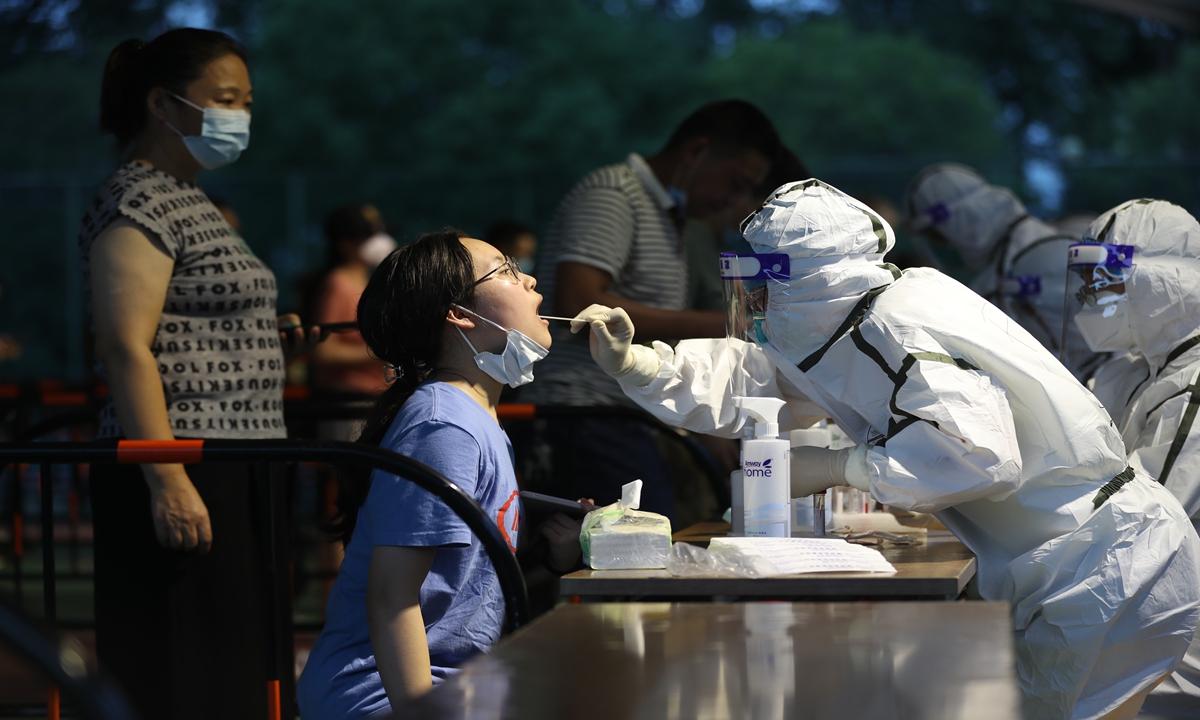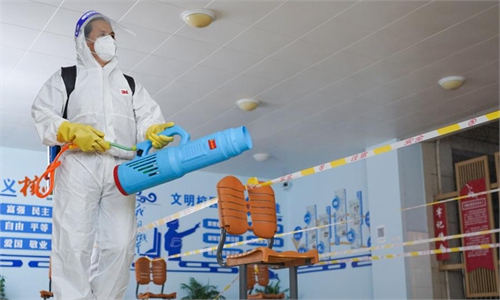
Citizens in Yangzhou, East China's Jiangsu Province are receiving nucleic acid testing on Sunday amid the latest epidemic outbreak with a total of 94 confirmed cases reported as of Tuesday. Photo: IC
Yangzhou has become another city of concern amid the recent outbreaks as among 45 new local cases were reported in Jiangsu on Monday, 40 in the city. 19 of them are mild and 21 are ordinary, the local health authority said during a press conference on Tuesday. The latest outbreak in the city was related to the resurgence in Nanjing, another city in Jiangsu.
Since its first two cases were reported on Wednesday, there are a total of 94 confirmed cases and two asymptomatic infections in the latest outbreak in the city, as of Tuesday. Two of the confirmed cases are in severe conditions.
The city has one high-risk area and 29 medium-risk areas as of press time.
The second round of large-scale nucleic acid testing in the main urban area has basically finished. As of 12 pm on Monday, about 1.5 million people had been sampled.
The city has upgraded its management on people involved in key urban areas and high-risk locations since July 21, and those with yellow or red health codes.
In this round of the epidemic, the first confirmed case in Yangzhou was a 64-year-old woman surnamed Mao from Jiangning district in Nanjing, Jiangsu. She came to Yangzhou by bus from Jiangning on July 21 and lived with her sister, who was also infected.
The trace report showed that Mao and her sister had gone to three local mahjong parlors to play cards, which made the parlors the "eye of the storm" in this round of the epidemic.
Mao is under investigation by the police in Yangzhou for hiding her itinerary and causing the COVID-19 flare-up in the city.
According to epidemiological survey statistics, as of Sunday, 43 confirmed cases in Yangzhou had been to mahjong parlors.
Local authority has asked all people who went to chess rooms after July 21 to report to community staff or police for further investigation.
The trajectory of cases before Monday showed that the confirmed cases in Yangzhou were mainly elderly people, mainly those who were associated with the mahjong parlors.
Such places are enclosed spaces and have relatively poor air quality, which pose a great risk of infection. This can make the local prevention and control efforts more difficult.


